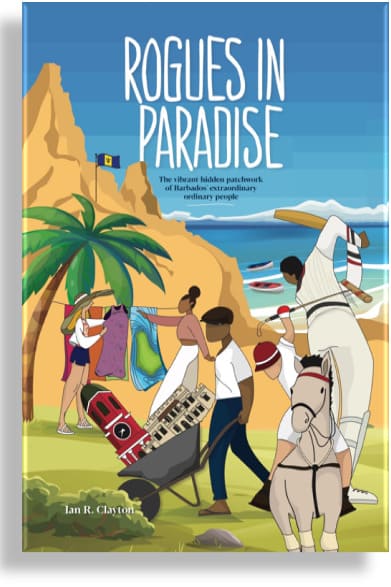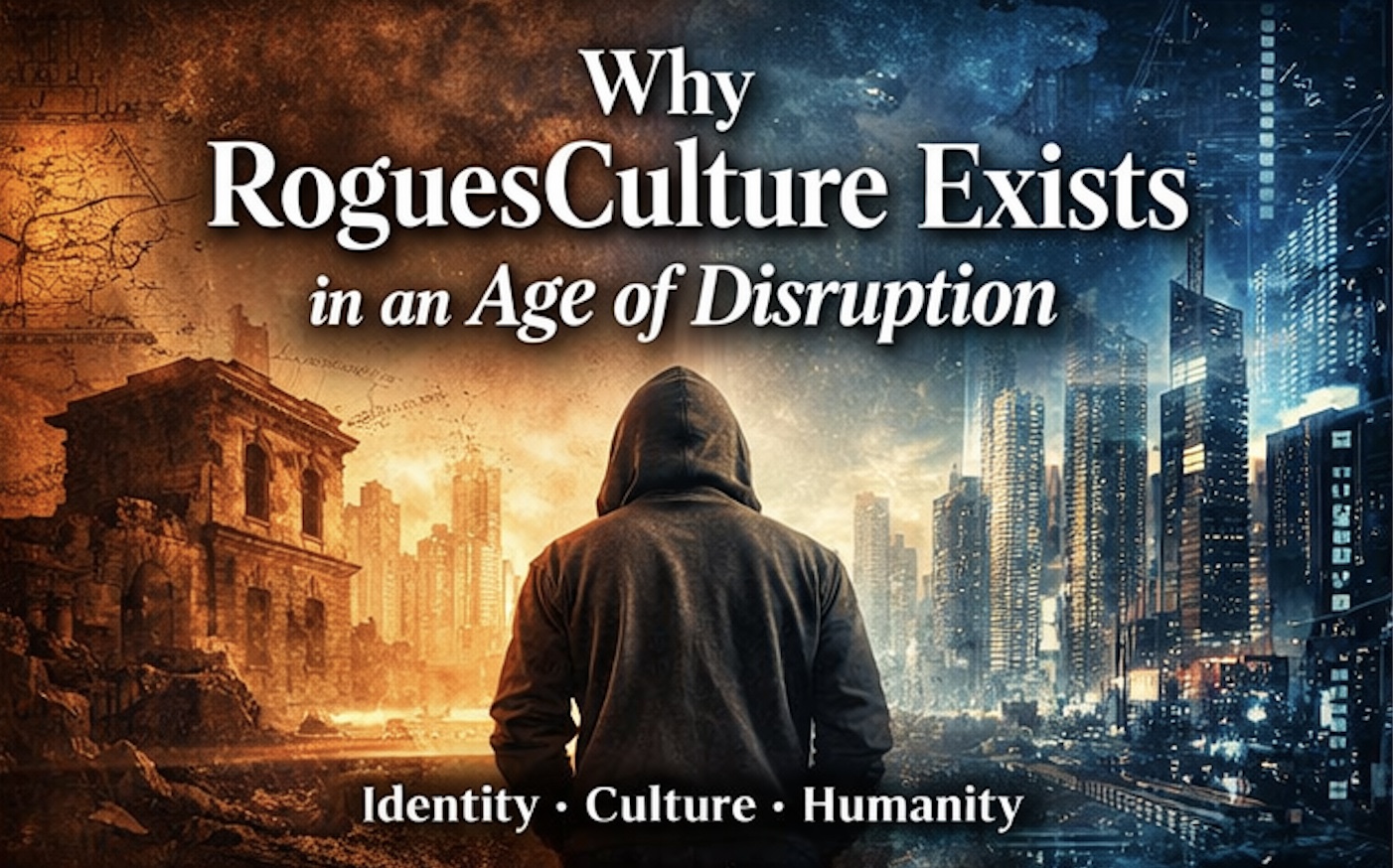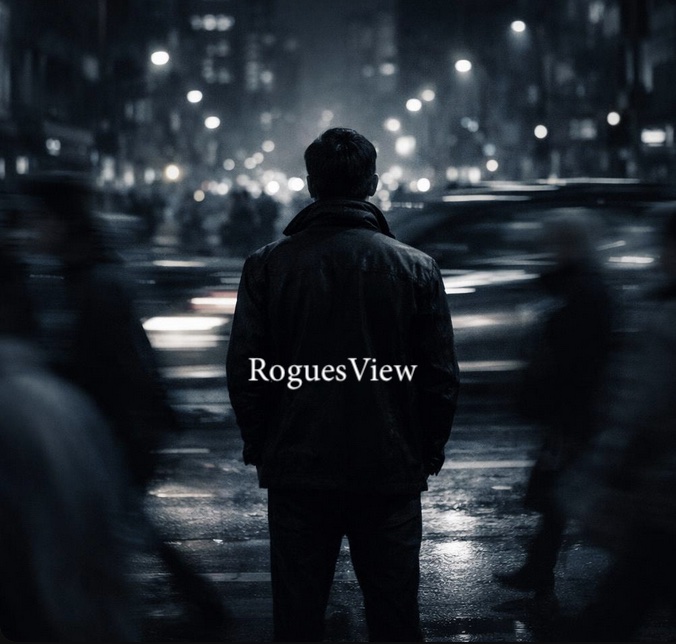This episode of Rogue Culture explores the deep roots of Rebel Soul, including Folk, Funk, Spirituals, Gospel, Country & Western, Hillbilly, Cowboy, and Redneck cultures.
All are united under the banner of soul—a sound born in Africa, later transformed and popularised by modern bands like The Soul Rebels.
It’s a powerful chapter in the RoguesCulture: Rebel Music series, celebrating rhythm, resistance, and the rebel spirit in every beat. All inspired by the book RoguesinParadise.com
LISTEN
Watch
The Animated Video- coming soon
Read
The full Text
Welcome to the Deep Dive. Today, we’re getting into something really powerful. We are. It’s the connection between music, rebellion, and resistance. Exactly. And our main source for this is Soul Rebels from Chains to Chord.
Right, which comes from the Rebel Music series. What we’re calling rogue culture. So our goal today really is to kind of unpack that fundamental link. Why does music seem so tied to the spirit of rebellion? Rogue culture. Rogues in Paradise block argues that music itself, its very structure can be defiant.
Okay, from chains to chord. I mean, the title itself paints a picture, doesn’t it? Oppression to expression. It really does. How does that work? How can a beat be rebellious? Well, think about early blues music, for instance. It wasn’t just a style. It was like a subtle sonic pushback. Against the more maybe rigid European musical forms of the time. Exactly. It was almost a coded language hidden in the music itself.
That’s fascinating. And melody. Absolutely. Melody is crucial. Think about folk protest songs, often in a minor key, maybe with melodies that go downwards. Creates a feeling of sadness or longing.
Precisely, a shared sense of sorrow, but also that yearning for something different hits you emotionally, connects people feeling the same way. Yeah, that makes sense. And it provides a voice, doesn’t it? Especially when speaking out directly is, well, dangerous. That’s a key point. Music becomes this channel, sometimes maybe the only channel, to express grievances, build that sense of community. And keep hope alive.
and keep that spirit of resistance burning. What about harmony? The source mentions dissonant chords. What does it mean in this context? This is basically when notes clash, right? They create this feeling of tension or unease when played together. Okay. So the analysis suggests that this musical tension can actually reflect or even amplify the friction within society. Like the sound itself mirrors the social discord.
Ah, so it’s not just random noise, it’s reflecting unrest. Kind of, yeah. It’s using the very texture of the sound to convey that feeling of things being off, unsettled. So it really is woven into the music, the beat, the tune, how notes sound together. It’s not just about the lyrics saying resist. Absolutely. The core argument is that the sonic structure itself carries this rebellious potential. And this isn’t just one genre, is it?
No, not at all. Soul Rebels makes it clear. Think punk rock, you know, that raw sound challenging everything. Yeah, definitely. Or hip hop, giving voice to marginalized urban experience. Music consistently pops up as this tool for people wanting to question things, wanting change. Okay, so our look at Soul Rebels, from Chains to Chord, really highlights this deep, almost essential connection. Music and rebellion are intertwined.
Right. Rhythm, melody, harmony, they aren’t just abstract musical concepts. They carry history, deep emotion, and that human impulse to push back against constraints. It leaves you thinking, doesn’t it? It really should. Think about the music you connect with.
How might it sound, not just its words, connect to the world? Exactly. Are there stories of resistance? Maybe subtle ones embedded in the rhythms and chords you hear every day? It’s definitely something worth listening for. So, OK, to really get it, we got to go back, right back to the beginning. Negro spirituals. Right. These weren’t just hymns sung in church on Sunday. No way. Think about the context. Enslaved Africans in the South. Music was absolutely vital. Survival. It was how they communicated, processed things.
unimaginable things. And these songs, they were this mix, weren’t they? African rhythms, Christian hymns. A really powerful blend. And what’s so incredible is how layered they were. Sure, they were about faith, but they were also packed with hidden meanings, coded messages about freedom, escape, all woven into religious words. Basically acts of resistance set to music.
Totally. Think about, um, Wade in the Water. Sounds like baptism, right? But it was also practical advice. Get in the stream, throw the dogs off your scent. Exactly. Real instructions for escape. It shows how these songs worked on, you know, multiple levels. Such a powerful example. And Rogues in Paradise really hammers this home. The spirituals, the bedrock. The foundation. Yeah. Musically, thematically.
Almost everything that came after, sacred or secular, you can trace bits of it back here. That call and response thing. Oh, yeah. Everywhere. Gospel, blues. Even rock and roll, you know, the way the instruments answer each other. It all starts here. So from that foundation, we get gospel music taking shape.
Mm-hmm. It becomes this like sacred pulse for black America that huge sound in the churches and gospel really took that spiritual feeling and just Amplify it right the power of the emotion. Oh, absolutely. You had people like Mahalia Jackson Her voice just carried so much weight suffering and hope all at once incredible and then you absolutely have to talk about sister Rosetta Tharpe Oh, yes a guitar
playing that electric guitar like nobody’s business, way before people think rock and roll truly started. Her influence there is just massive, undeniable. And this is where those connections really start getting deeper, I think. Gospel wasn’t just church music. No, not at all. It was tied right into the civil rights movement. It’s community protest. Soul poured into melody. Yeah. So building on that, gospel’s emotion and power, then comes soul music.
How does Rogues in Paradise frame that? They call it gospel’s secular cousin, maybe a bit more rebellious. Okay. It takes that same emotional fire, but points it more at, you know, worldly stuff. Power, injustice. It wasn’t afraid to speak up. Yeah, you think of songs like Sam Cooke’s A Change Is Gonna Come, just gut-wrenching. Absolutely. Or Aretha Franklin’s Respect. That became more than a song, didn’t it? Oh, totally. An anthem. A demand for dignity in that really crucial time.
Soul was the soundtrack, wasn’t it, for self-love, for revolution, for just unfiltered black expression, taking that spiritual energy into the everyday fight. Okay, so then, funk. Let’s talk funk. This is where the rhythm just takes over. Oh, yeah. Funk in the 60s. It grabs soul, R&B, gospel, and throws it all into this pot with a massive focus on the groove. He feels so physical.
That’s it, exactly. It’s about the feeling, the body. Less about complicated chords, more about that raw, undeniable rhythm that just makes you move. Those bass lines. Yeah. That syncopation, the beat kind of pulling you in. Irresistible. And the pioneers. You gotta name James Brown, obviously. The Godfather. And Sly and the Family Stone, Parliament Funkadelic.
and Bette Davis. Fiercely independent. Absolutely. They were using funk to, like, reclaim power, express joy, push back against everything. Just this huge, unapologetic energy. Didn’t James Brown say something like, -“Funk was freedom.” -♪ Ooh! Yeah. That really nails it. It was rebellious, sometimes really sexual, political, but still had that kind of spiritual thing underneath. Wild. All wrapped up in a beat that shook your bones.
You can hear the lines straight from spirituals, gospel, soul, but with this unique rhythmic punch.
So we see this clear path through these genres we often think of as black music, but then Rogues in Paradise throws a curveball, right? About folk and country. Yeah, this is where it gets really, really interesting because we usually put those genres in a different box. Well, a whiter box. Right. That’s the common perception. But the truth is way messier. Yeah. And more connected. Take the banjo. The absolute staple of folk and country.
Its origins are African, directly. And a lot of the storytelling, the rhythms, they have roots in the black experience, too. Wow. So there’s been this erasure. A significant historical under-representation, yeah. But if you look closer, the history is much richer, much more mixed. And part of that hidden history involves black cowboys. A huge part. After the Civil War, estimates are like one in every four cowboys was black.
One in four. That’s not the picture you usually get. Not at all. These guys were incredibly skilled, tough as nails, facing not just the elements and hard work, but bandits, rustlers. And racism, constant hostility. Deeply ingrained prejudice, absolutely. Think of guys like Bo Zickert, Charles Goodnight’s trusted right-hand man. Yeah. Or Nat Love, Deadwood Dick. His autobiography is gold, a first-hand look at that life. Their stories are essential, aren’t they, to understanding the West properly. Totally. And these cowboys, well, they sang.
out on the range, calming the cattle, keeping rhythm, passing the lonely hours. Exactly. And as Rogues in Paradise points out, black cowboys brought their own musical flavor, that rhythmic thing again, improvisation, that spiritual depth, often with the banjo. And this fed into country.
and folk. Directly influenced them. And the blues, too. It’s all connected. Okay, so let’s add another layer. Rogues in Paradise also talks about the terms hillbilly and redneck. Right. Understanding the context there is important, too. Hillbilly originally pointed to those Appalachian communities, often Scots-Irish folks. Settled in the mountains, kind of isolated. Developed their own amazing music traditions.
Old time bluegrass Appalachian folk banjo and fiddle were huge and redneck that just meant farmers with sunburns originally. Yeah literally from working outside it became this more complex cultural thing later sometimes about rural pride maybe pushing back against the mainstream.
V.S. Naipaul wrote about that, didn’t he, in a turn in the South, seeing past the stereotype? Yeah, he saw the deep culture, the history, the religion, that kind of defiant spirit in those communities. It wasn’t simple. And the music from these groups?
Hillbilly music, country ballads, outlaw country later on. Well, we often see it as just a white tradition. It wasn’t totally separate. It was bumping up against influence by those black traditions we’ve been talking about. Exactly. Which brings us to a really key point. The music industry segregation.
Race records for black listeners. Hillbilly records for white listeners. That was about race, not sound. Purely race. Not because the music was fundamentally that different in all cases. Because underneath that industry separation, musicians were still swapping ideas.
all the time. Jam sessions, front porches, juke joints. People were listening to each other, borrowing rhythms, tunes, styles, despite the labels. Which kind of leads us to today, right? Rogues in Paradise talks about a roots rebellion happening now. Yeah, it feels like a reclaiming is happening. Artists are consciously digging into these mixed histories, blurring those old lines. Artists like? Oh, like Dom Flemons, digging into the black string band tradition. Beyonce, obviously, with her country explorations. Mickey Guyton, Lil Nas X.
Yeah, showing that black music isn’t just one thing. It’s this huge, diverse spectrum. Absolutely. And, you know, these connections, these crossroads, they aren’t new. Even way back, pre-integration. You had black fiddlers playing at white dances. White singers picking up black rhythms. And DeFord Bailey. The harmonica player. Yeah, a black musician who was one of the first stars of the Grand Ole Opry. Wow. That history gets buried.
It does. And you see that same kind of rogue spirit today. Beyonce rocking cowboy gear. Lil Nas X owning that old town road space. Embracing the aesthetic. Yeah. But with black pride. Exactly. It feels like coming full circle in a way. So let’s pull back to that word soul. The dictionary might give you one definition.
Right, like Black American music, late 50s, 60s, standard stuff. But Rogues in Paradise pushes for something bigger. Much bigger. That essence of soul, the resistance, the deep feeling coming out of struggle that didn’t start in the 50s. No, you can hear it way earlier. You hear it in the spirituals, the very first songs of enslaved Africans. It’s in the rhythms, the cries. It’s always been there. That rebel soul. That’s the thread. So wrapping up this deep dive,
It really feels like American Roots music is this incredibly tangled, interconnected thing. Deeply interconnected. And Black music traditions weren’t just part of it. They were foundational. Absolutely central. Yeah. And that rubble soul we talked about, it just echoes through everything from spirituals to, well, whatever’s topping the charts today. It really challenges how we usually think about music history. It does. It forces you to look beyond the easy labels.
And hopefully, for you listening, if you’re into getting knowledge quickly but also want those aha moments, hopefully, this look at where American music really comes from has delivered that. Yeah, maybe revealing some connections, a deeper story than the one you usually hear. Definitely makes you think. Which leads to a final thought, maybe. How does that rebel soul show up now in today’s music? Good question.
Maybe, you know, start listening for it. Look for artists across all kinds of genres who have that spirit, that defiance, that honesty. There’s probably a lot out there waiting to be heard differently now. Exactly. Go explore.
Inspired By Rogues In Paradise
This blog is just the first verse. Stay tuned for a new Rebel Music Podcast (Soul Rebels Chains to Chords)- The Rogues Culture series that dives deeper into each of these genres. You’ll hear stories of unsung heroes, rebel songs that changed history, and the roots of rhythm that still shape our world today.
➡️ Subscribe to get early access to sample chapters of Rogues in Paradise. Free Rogues Culture Newsletter and Invitation To The Book launch- And be the first to hear the podcast.
Get The Book Rogues in Paradise for more. A true fun, and insightful piercing story of amazing people, place, and history. The book playfully interweaves factual narrative with imaginative storytelling and verse.

PODCAST Blogs & Resources
- RoguesCulture Manifesto Deep Dive: Identity AI & Humanity
- Washington Black Meets the Real Barbados
- Podcasts Shift to Video: Amazon Says Listen-Only is Broken
- RoguesCulture Rebel Soul Music Podcast – episode #2
- RoguesCulture-The Punk Rebellion
- RoguesCulture Music Rebels
- RogueCulture – Podcasts Rising!
- RogueCulture Asks What Is a Podcast Anymore
- Molten Memories: The Animated Podcast Experience
- Molten Memories- Rogues Culture Podcast 2
- RoguesCulture -The History Of Podcasting
- Podcast Marketing Strategies Added
- Rogues Hybrid Podcast Animated Video
- Overview Rogues Podcast 1 Script








